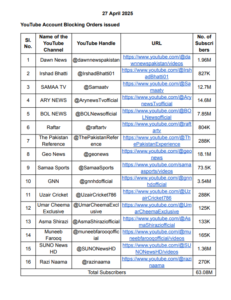Delhi Minister Gopal Rai writes to transport ministers of Haryana, UP, Rajasthan; urges halt on entry of diesel buses into national capital
New Delhi [India], October 22 (ANI): Amidst the rise in Air Quality Index (AQI) levels in the national capital, Delhi Environment Minister Gopal Rai wrote a letter to the transport ministers of Haryana, Uttar Pradesh, and Rajasthan, requesting them to halt the entry of diesel buses from these states into the national capital.
“I am writing to express my deep concern regarding the increasing air pollution levels in Delhi with the onset of the current winter season. One major component of this air pollution is vehicular emissions largely attributed to the significant number of diesel buses entering the city from Uttar Pradesh. The impact of diesel emissions on air quality is well established, and the large influx of such buses significantly contributes to the degradation of air quality in Delhi, posing serious health risks to the residents,” Gopal Rai stated In the letter.
He further said that Diesel buses emit a considerable amount of harmful pollutants responsible for respiratory diseases and other health issues.
“Delhi is already grappling with poor air quality, and this additional burden from interstate traffic is aggravating the situation,” he stated.
He further requested the transport ministers to restrict the entry of diesel buses from Uttar Pradesh entering Delhi.
“In light of this, I kindly request your esteemed Office to consider restricting the entry of diesel buses from Uttar Pradesh entering Delhi or implementing stricter regulations to control their emission norms. Together we can work out implementing more effective solutions like transition to CNG or Electric Buses for interstate transport along with strictly enforcing vehicle pollution norms,” Rai said in the letter.
Rai expressed hope that the request would be given due consideration for the betterment of the environment and public health.
“By taking proactive steps, we can collectively work towards reducing air pollution, ensuring a cleaner and healthier environment for the capital. I hope this request will be given due consideration for the betterment of the environment and public health. I look forward to positive action from your Government on this sensitive issue,” he said.
Earlier today, the Delhi Environment Minister announced that GRAP-II (Graded Response Action Plan) rules have been enforced across North India as the air quality index (AQI) has crossed over 300.
A meeting with senior officials was called to improve GRAP-II implementation in Delhi NCR.
The Commission for Air Quality Management (CAQM) ordered the implementation of the Graded Response Action Plan (GRAP-II) in Delhi-NCR on Monday after the overall Air Quality Index dropped into the ‘Very Poor’ category in the region. Delhi recorded a daily average AQI of 310, placing it in the ‘Very Poor’ category, according to the daily AQI Bulletin provided by the Central Pollution Control Board (CPCB).
“As per the dynamic model and forecasts for weather and air quality made available by IMD/IITM, there is a likelihood of the daily average AQI of Delhi staying in the ‘Very Poor’ category (AQI 301-400) in the coming days owing to unfavourable meteorological and climatic conditions. Accordingly, the Sub-Committee for the operationalization of the Graded Response Action Plan (GRAP) of the Commission for Air Quality Management in NCR and adjoining areas (CAQM) met today to take stock of the air quality scenario of Delhi-NCR,” according to a release from the Ministry of Environment, Forest and Climate Change.
With Stage II of GRAP coming into force, an 11-point action plan is applicable with immediate effect throughout the NCR, in addition to all Stage-I actions of GRAP already in place.
The Sub-Committee also encouraged citizens to take specific steps, including using public transport and minimizing personal vehicle use, taking less congested routes even if slightly longer, regularly replacing air filters in automobiles, avoiding dust-generating construction activities from October to January, and refraining from open burning of solid waste and biomass.






